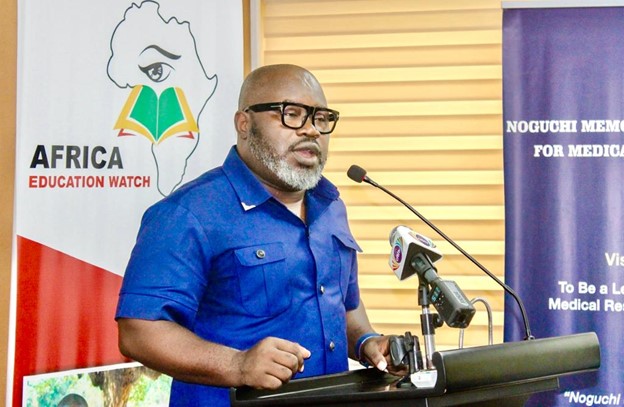To foster the achievement of the policy objectives of the Education Strategic Plan 2018-2030 and key education Sustainable Development Goals (SDGs) targets by 2030, civil society organisations (CSOs) have outlined key areas that political parties’ manifestoes must tackle, including spending efficiency, quality and increased funding on the basic level.
The CSOs, including the Africa Education Watch (Eduwatch), in a bid to influence manifestoes toward attaining these goals, have engaged the policy formulation committees of the main parties, making these important recommendations.
The Eduwatch, in its education manifesto engagement document dubbed ‘EduFesto,’ highlighted various gaps and the pragmatic policy decisions required to address them from the basic to tertiary levels.
For instance, in the area of accountability and spending efficiency, the CSOs recommended the need to ensure governing boards of education sector institutions have key performance indicators (KPIs) on the supervision of finance, procurement and general statutory compliance to reduce financial waste, while enforcing competitive procurement as a norm, rather than an exception.
Basic education level
Access, quality and governance were the key highlights at the basic level. Specific policy decisions expected in the manifestoes at this level include Developing and implementing a five-year plan to remove all schools under trees; Pursuing Primary to Junior High School (JHS) parity in infrastructure; Roll out a plan to provide ICT facilities and desks to all public-basic schools; Promote gender transformative and climate responsive education; and Roll out a plan to provide Science and Mathematics learning kits for all public basic schools.
Others include Implementing a 20 percent allowance for teachers who teach in deprived communities; Implementing a demand-driven decentralised teacher recruitment system; Strengthening training systems, facilities, furniture and supervision in Kindergartens; Developing basic practical agriculture (farming) in JHS; and Developing assessment tools for measuring pupils’ attainment of the 21st-century skills focused on in the Standard Based Curriculum.
Secondary and TVET education
At the Senior High School (SHS) and Technical Vocational Education and Training (TVET) level, the policy think-tank recommended Decentralised food procurement to secondary schools and enhanced funds disbursement; Publish school placement data on the computerised school selection and placement system website and school notice boards; Re-set the academic system to release Basic Education Certificate Examination (BECE) results before secondary school selection; Migrate the free SHS Secretariat and the management of free SHS from the Ministry of Education (MoE) to Ghana Education Service (GES); and Develop a means-testing mechanism to target free SHS. This includes identifying the poor, using comprehensive national household registry data.
Pre-tertiary external assessment
Regarding policies around external assessment to qualify for the tertiary level, Eduwatch recommends the Establishment of an independent regulator for the pre-tertiary assessment sector; Amendment of the West African Examination Council (WAEC) law to address new dynamics in examination fraud; Install CCTV cameras in examination halls to eliminate exam malpractice; Exclude teachers from invigilation and supervision; and Pilot e-testing in the West African Senior School Certificate Examination.
Tertiary
Institute a Technical Vocational Education and Training (TVET)/Science Technology Engineering and Mathematics (STEM) study support financial scheme; Establish business incubation and start-up support schemes in TVET institutes and Technical Universities for TVET graduates; and Scrap the teacher training allowance and strengthen the Student Loan Scheme to cover all tertiary students, including teacher trainees.
Financials
With funding remaining a major challenge to the provision of education infrastructure and eliminating schools under trees, the CSO is hoping to see manifestoes targeting to Uncap and commit a minimum of 33 percent of the Ghana Education Trust Fund (GETFund) to basic education infrastructure; Automatically benchmark the Capitation Grant and Ghana School Feeding Programme against inflation, using an indexation mechanism; Commit 50 percent of education expenditure to basic education; and Develop a Legislative Instrument for the Pre-Tertiary Education Act of 2020 (Act 1049), and specify funding norms for all sub-sectors.










